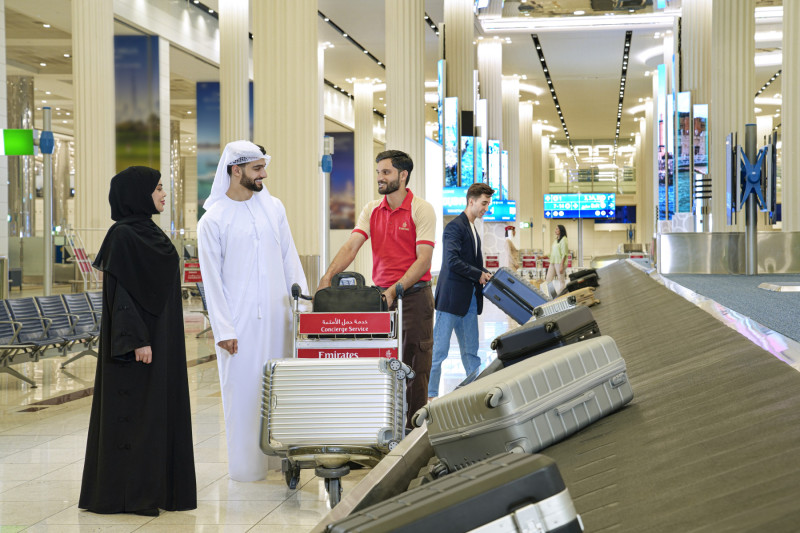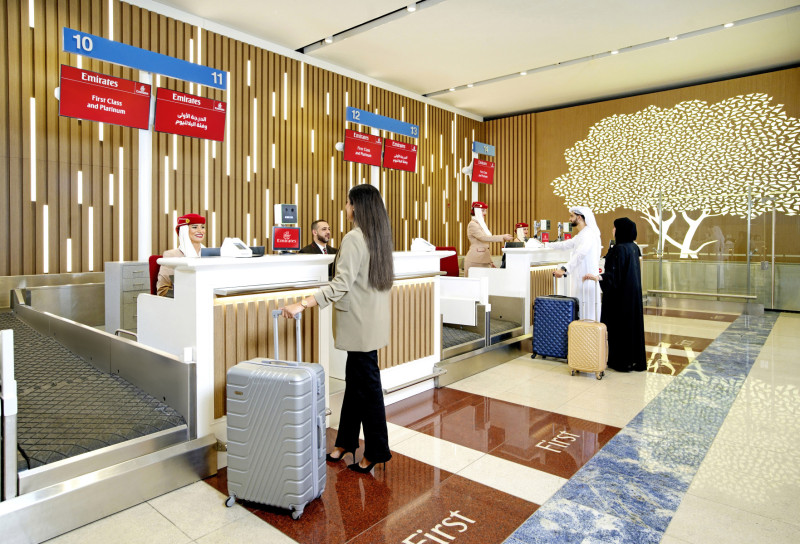
Landing in the UAE comes with more than just a warm welcome and sunny skies. Whether you’re a solo explorer, a family on vacation, or a business traveler extending your trip, your journey begins with instant perks. Tourists flying into Dubai or Abu Dhabi can access a wide array of exclusive benefits—free SIM cards, discount cards, transport upgrades, and hundreds of offers at top attractions—all for simply arriving in the Emirates.
Welcome to Dubai: Start with a Free SIM Card
One of the first surprises awaiting tourists at Dubai International Airport (DXB) is a complimentary Tourism SIM card courtesy of du, one of the UAE’s major telecom providers. This SIM, available upon clearing immigration, offers 1GB of data valid for 24 hours, helping new arrivals navigate maps, make bookings, or connect with loved ones back home immediately.

Eligibility includes those arriving on visit visas, transit visas, or with visa-on-arrival, as well as GCC nationals. Tourists can upgrade their plan at du kiosks located at the airport or through Dubai Duty Free counters. Alternatives are also available from other major telecom providers, Etisalat and Virgin Mobile, which offer prepaid SIMs with competitive packages designed specifically for tourists, often bundled with international minutes and longer data validity.
This small but essential service ensures that visitors stay connected, which is especially useful for ride-hailing apps, translation tools, and ticketing platforms widely used across the UAE.
ALSAADA Card: Dubai’s Digital Welcome Kit for Tourists
With the SIM card in hand, visitors gain access to another benefit—a digital ALSAADA Tourist Card, Dubai’s official tourist discount programme run by the General Directorate of Residency and Foreigners Affairs (GDRFAD).

To activate this card, tourists simply scan the QR code printed on the SIM card envelope, which directs them to download the ALSAADA mobile app, available on both Android and iOS. After a quick registration process, users can start exploring discounts and promotions available across restaurants, retail stores, wellness centers, leisure attractions, and shopping malls.
Unlike traditional paper coupons, the ALSAADA card is digital and updates in real-time, making it a handy tool for tourists wanting to make the most of their budget without carrying around brochures or discount books.
Chauffeur On Demand: Hire a Driver by the Hour
Exploring Dubai in comfort and style is easier than ever with the Hourly Rental limousine service offered by the Dubai Taxi Corporation (DTC). This service allows tourists to book a professional chauffeur to drive them around the city in a private vehicle—ideal for sightseeing, business meetings, or shopping tours.
.jpg)
Surprisingly cost-effective, this service starts at AED 400 for two hours and goes up to AED 1,100 for ten hours, with packages tailored to fit a variety of travel needs. Unlike regular taxis, the limousine option does not include waiting time charges, and you only pay extra if you exceed the allotted hours or distance.
Booking is simple via the “DTC” app, which offers real-time scheduling and payment options. Here’s a quick breakdown:
-
Two hours: AED 400
-
Four hours: AED 650
-
Six hours: AED 800
-
Eight hours: AED 900
-
Ten hours: AED 1,100
-
After package expiry: AED 3/km and AED 1/minute
This service is perfect for tourists planning to visit multiple locations in a single day, offering flexibility, comfort, and the prestige of private transport.
Show Your Boarding Pass, Get a World of Discounts
Perhaps the most surprising benefit of visiting the UAE is how your boarding pass becomes a ticket to savings. Two of the UAE’s flagship airlines, Emirates and Etihad Airways, offer special promotions for passengers who retain their boarding passes.

Emirates: “My Emirates Pass”
Emirates passengers can benefit from the My Emirates Pass, a seasonal discount programme that turns your boarding pass into an access card for offers at over 500 locations. Deals span across:
-
Attractions like At The Top – Burj Khalifa, Dubai Frame, and Museum of the Future
-
Amusement parks such as IMG Worlds of Adventure and Aquaventure at Atlantis
-
Retail outlets and luxury brands at malls like Dubai Mall and Mall of the Emirates
-
Fine dining restaurants, cafés, and spas
Offers are available to those who present a valid physical or digital boarding pass, along with ID, and are usually valid for up to a month from the date of arrival (subject to seasonal dates—check Emirates’ official site for the latest validity periods).

Etihad Airways: “Abu Dhabi Pass”
Etihad passengers arriving in Abu Dhabi can access the Abu Dhabi Pass, offering similar benefits across the capital’s top destinations. Exclusive discounts are available at:
-
Yas Island attractions, including Ferrari World, Warner Bros. World, and Yas Waterworld
-
Luxury hotels and spas, especially in Saadiyat Island and Corniche areas
-
Dining establishments, from gourmet to family-friendly
These perks not only save tourists money but also encourage them to explore both Dubai and Abu Dhabi, enriching their travel experience.
The Bigger Picture: UAE’s Tourism-First Strategy
These offers are part of the UAE’s larger initiative to position itself as one of the most tourist-friendly destinations globally. With streamlined airport experiences, high-speed public transit, visa-on-arrival for over 80 nationalities, and now, digital discount programmes, the UAE is creating an ecosystem that values accessibility, affordability, and convenience for its international visitors.

For tourists, the message is clear: don’t throw away your boarding pass, and be sure to scan everything you receive at the airport. From that moment, the UAE starts paying you back for visiting.
Tip: Before arriving, check the official websites of Visit Dubai, Etihad, or Emirates, as offers and promotions may be seasonal or time-limited.























.jpg)










.jpeg)





















